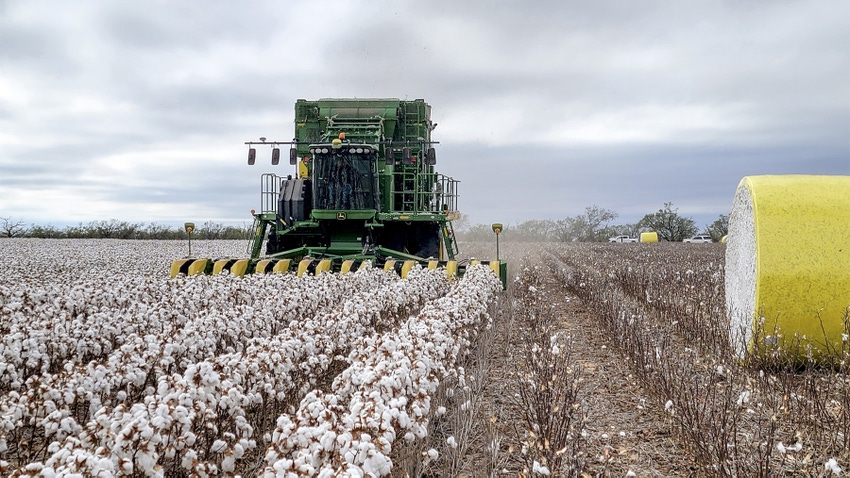
Several significant challenges could cause cotton producers to rethink how much acreage they plant in the coming years.
Steve Hague, Texas A&M AgriLife cotton breeder, said the net effects of these challenges could be that profits are decreased and producers plant less acreage.
Hague, addressing the recent 34th annual Texas Plant Protection Association Conference in Bryan, said challenges for tomorrow include:
Weather issues.
Less land
Pest control issues
Higher energy costs
Labor shortage
Increased equipment costs and reduced availability
Increased competition from other natural fibers as well as polyesters.
Hague said breeders and growers should pay attention to the key cotton variety factors the market wants.
“The most important aspect of a cotton variety, in my opinion and what the market is telling us, is transgenic traits,” he said.
“Most varieties have at least two herbicide traits, plus BT and we're about to have ThryvOn, so we're looking at minimum of six traits and sometimes seven.”
He said producers tend to look at transgenic traits first when they select a variety. “That's what they ask for first, and that's what the market is saying.”
He said yield is the second priority. “Disease resistancehas moved up the list a little bit,” he added.
Hague said producers are also identifying varieties with the right maturity fit. “And then they give a wink and a nod to fiber quality.
“This is what the market is telling seed companies and cotton breeders.”
Hague said phenotypic diversity is a significant factor for the cotton industry. “Public breeders have an important role within the cotton industry in creating this genetic diversity.”
He said commercial seed companies are making good use of genomics and phenomics, where most of the genetics gains are being derived.
“In public breeding programs, we're still delivering genetic diversity and we’re still doing a lot of research on selection tools. Cotton varieties are getting better and breeders are delivering the transgenic technology.
“I think our most important contribution, however, is training the next generation of plant breeders.
About the Author(s)
You May Also Like






